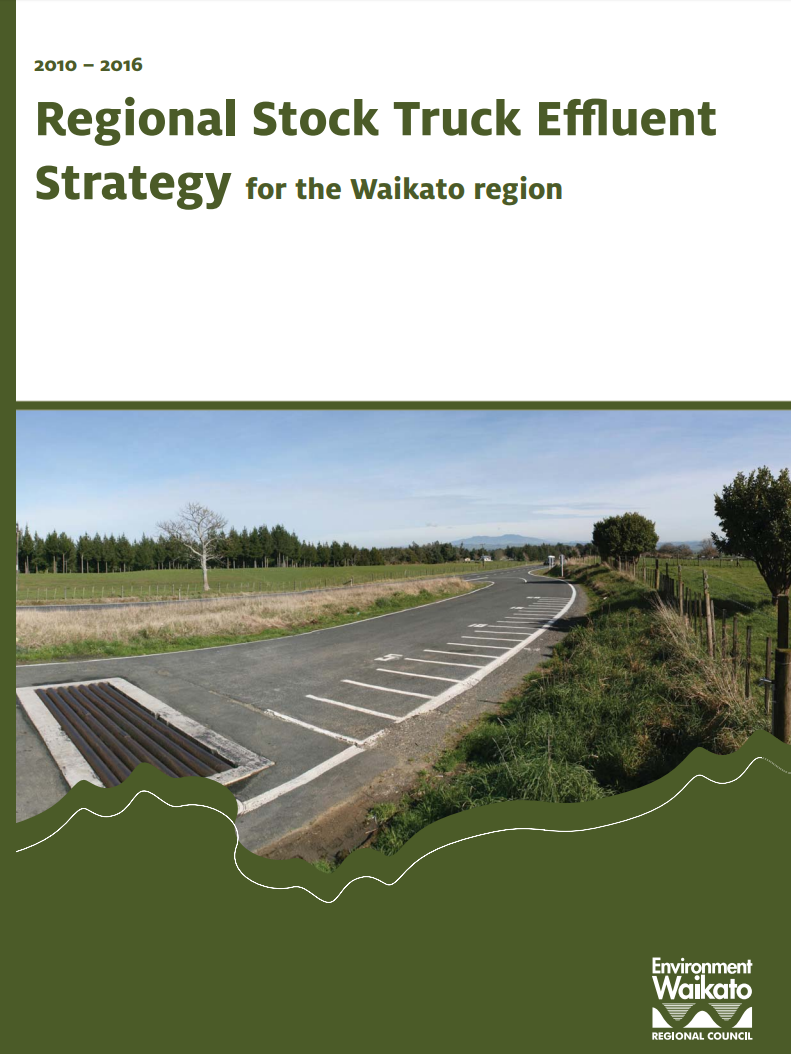Stock Truck Effluent Strategy

The Regional Stock Truck Effluent Strategy for the Waikato region is based on the vision:
Working toward zero discharge of stock effluent from trucks onto Waikato roads by 2020.
The strategy has been developed by Waikato Regional Council in collaboration with the Regional Stock Truck Effluent Working Group and in accordance with the Regional Land Transport Strategy 2006-2016.
The purpose of the strategy is to set out a holistic strategic framework to prevent or minimise stock truck effluent discharge onto roads in the Waikato region. It achieves this by identifying 14 key objectives, eight policies and 24 actions for all stakeholders who hold joint responsibility for the management of stock truck effluent. The policies have been developed in recognition that there are eight key issues contributing to the amount of effluent being spilt onto roads.
The Waikato region has the largest number of livestock of any region in New Zealand, with over five million livestock. Thousands of stock truck trips are made each year, from farms to meat processing plants, to and from sale yards and between farms, incurring a significant amount of stock effluent discharge onto roads and road reserves.
This problem is exacerbated by a lack of suitable effluent disposal facilities in the region for stock transport carriers to use in-transit or at their destinations. However, the issue is not just for stock transport companies to address.
There are a number of stakeholders directly and indirectly involved in the movement of stock, and a number of contributing factors to the problem, including:
- the farmer, responsible for the management of livestock up to the time they are loaded onto the truck, and for receiving new or relocated stock
- the stock truck, which should have a stock effluent holding tank fitted
- meat processors, which should have stock truck effluent disposal facilities
- sale yards, which should have stock truck effluent disposal facilities
- a lack of in-transit stock truck effluent disposal facilities.
Every stakeholder can contribute to the better management of stock truck effluent to minimise the amount which ends up on the road or roadside receiving environments.
Stock truck effluent spillages onto Waikato roads and environs cause numerous adverse effects, including:
- contamination of land and waterways (the effluent can contain viruses, bacteria, nitrogen and concentrations of noxious plant seeds)
- road safety hazards for cyclists, motorcyclists and motor vehicles
- health hazards to people including cyclists, motorcyclists, pedestrians and roading contractors
- nuisance odours
- negative public perceptions
- damage to road surfaces.

